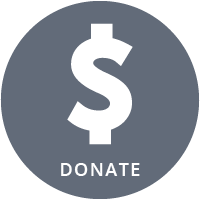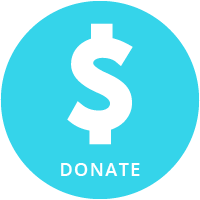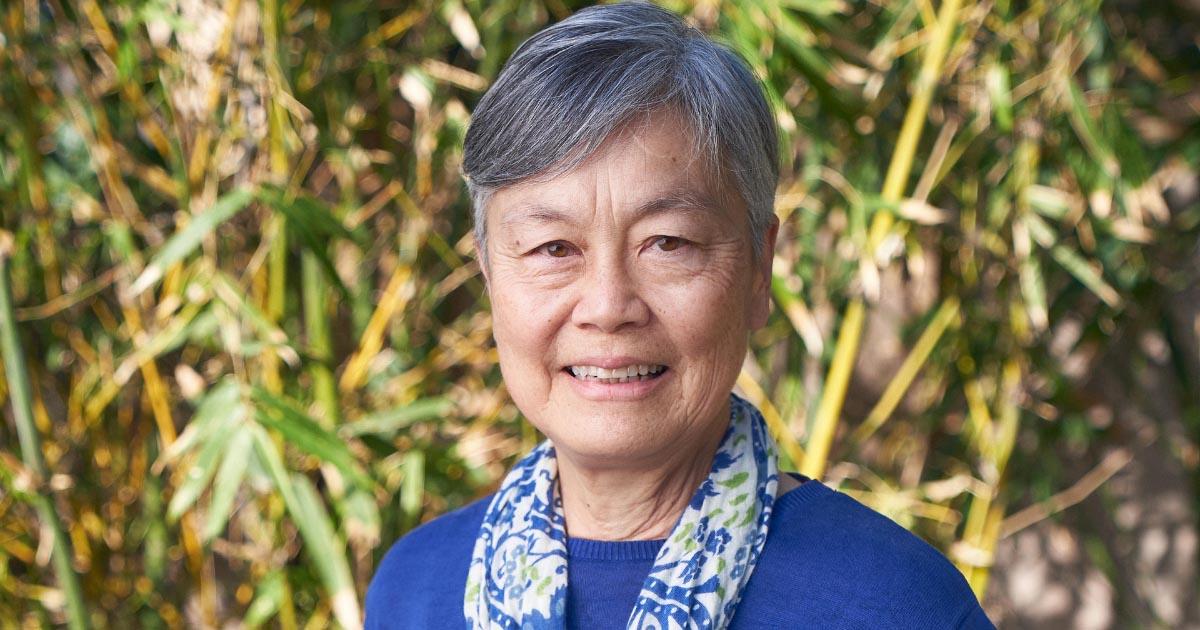
Hospice chaplain Tenzin Kiyosaki helps patients appreciate their lives while finding satisfaction in her own.
Written by Nancy Sokoler Steiner | Photo by Vincent Rios
She started her days at 3:30 a.m., taking advantage of the quiet before the others arose by 5 a.m. She ate simple meals—mostly rice and vegetables. Living in a cement building in the Himalayan foothills, she shivered throughout the winter.
Tenzin Kiyosaki couldn’t have been happier. She was in Dharamsala, India, training to be a Buddhist nun in the Tibetan tradition. The only American in her nunnery at that time, Kiyosaki’s days were filled with prayers, meditation, classes and study. In 1985, she was ordained by His Holiness the Dalai Lama.
Today, Kiyosaki serves as a hospice chaplain at Torrance Memorial Medical Center. She is part of the team that provides physical, emotional and spiritual comfort to patients and their families when the patient’s life expectancy is less than six months.
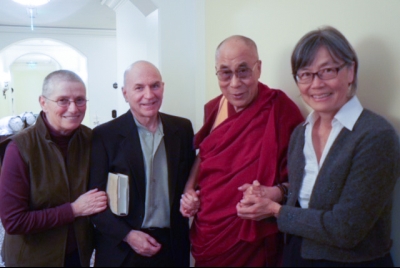
While offering nondenominational care to patients of various religions or no religion, Kiyosaki draws upon her background in approaching her work. Her studies taught her “everything is impermanent, everything changes,” she explains. “Our actions have effects. We have the possibility to purify our misconceptions, delusions and mistakes and have the potential to cultivate excellent qualities.”
Kiyosaki was drawn to spirituality and a desire to be of service from an early age. Growing up on the Big Island of Hawaii, she sang in a church choir with her mother. She learned about the impermanence of life, thanks to the damage caused by periodic volcanos and a tsunami. “We lived with nature,” she says. “We’d see molten rock consuming buildings, and a tsunami destroyed our town.”
Her mother, a staff nurse at the Peace Corps training center, cared for trainees bound for Southeast Asia. “Interacting with them inspired my desire to help others as well as my love of travel,” says Kiyosaki. “My family became friends with the families of the instructors, who came from around the United States and Southeast Asia. I was exposed to people from all traditions and faiths. In Hawaii, all the cultures mixed together. It was so rich and wonderful.”
She earned her bachelor’s degree in psychology at Antioch University and her master’s degree in Buddhist studies at Naropa University in Boulder. While in Colorado, Kiyosaki studied with a teacher from Tibet and decided she wanted to study in a more traditional Tibetan Buddhist setting. She decided to travel to India, where the Dalai Lama, other Tibetan monk/scholars and the Tibetan community live in exile. It took her nine months to save up for her journey.
Kiyosaki made it to Dharamsala in 1975. She would spend months at a time in India, then go back to the U.S. to earn enough money to return. In Southern California, she also worked at the Thubten Dhargye Ling Buddhist center, now in Long Beach. She served on the organizing teams for the Dalai Lama when he visited Los Angeles, arranging events and handling logistics.
When he ordained her, the Dalai Lama gave Kiyosaki (whose given name is Barbara) the name Tenzin Kacho. Tenzin, which means “holding the teachings,” is also the Dalai Lama’s first name and the one he gives to all those whom he names. Kacho, means “enjoyer of space” which Kiyosaki says refers to the nature of reality.
When she first met the Dalai Lama early in her spiritual seeking, he told her, “You create conditions, so you can continually improve yourself; you have that potential. We all have that potential for enlightenment.” Then he continued with a chuckle, “Take myself, for example; when I become enlightened, I’ll be a very good person!”
For six years, Kiyosaki worked with cadets at the United States Air Force Academy in Colorado. Wearing her robes and cropped hair, “I would tell them we have a lot of similarities. We both wear uniforms. We have the same hairdo, and we follow a code of ethics,” she says.
Kiyosaki started as a Torrance Memorial Hospice chaplain in 2008 and completed her clinical chaplain certification. She resonated with the idea expressed by a social worker colleague, who told her that patients in hospice are transitioning from the physical to the spiritual realm. “I try to normalize the experience,” she says. “Death is something we all face.”
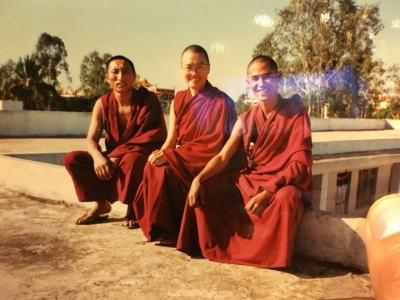
“The goal of hospice is to promote a peaceful passing,” she continues. “We help patients and their families feel prepared, informed and ready. It doesn’t always happen.”
She encourages her patients to engage in a life review, inviting them to share their stories and values. The process can provide a sense of peace and gratitude for the patient and serve as a legacy for family members even as they struggle with grief and loss. Kiyosaki tries to direct patients to “find some contentment in their life experiences rather than dwelling on what they didn’t do or won’t get to do.”
Kiyosaki served as hospice chaplain for the parents of Heather Baker in 2017. “My parents loved her,” Baker says via email. “All three shared a love of the ocean and often spoke of the places they had seen or swam when they were younger. Tenzin remembered minute details about what mattered to them and would bring them up in discussion and life review. She would request Dad to offer a prayer each visit, which he loved. When my mother passed away, Tenzin encouraged my father to write something about Mom he could read at her memorial service. She cared about them, and they loved her.”
Kiyosaki noticed that her appearance—clad in brick-red robes, her head shaved—could disconcert patients. That, along with a desire for more flexibility in her life, led Kiyosaki to return her vows in 2013. She still retains her Buddhist faith and returns to India for several weeks most years.
Kiyosaki just completed a book, The Three Regrets, tentatively scheduled for publication in March. She imparts insights she’s gained from working with hospice patients, focusing on three areas in which they have expressed regrets. The first deals with missed opportunities and making peace with the road not taken. The second refers to love and the ability to express it to others. The third involves forgiveness and the ability to release grievances with others or themselves.
“At the end of life, there are a lot of things going on in our hearts,” says Kiyosaki. “Along with our medical condition, we still have to contend with our emotions.” She hopes the book will serve as motivation “to work on our healthy emotional life throughout our lives, not just at the end.”
Reducing Regret
In her book, The Three Regrets, Torrance Memorial hospice chaplain Tenzin Kiyosaki writes about the disappointments patients often express at the end of life. She offers suggestions for living life in a way that may lessen or avoid these feelings.
“When you experience regret, look at it as a tap on the shoulder reminding you to take care of the issue rather than ignoring it,” she says. “For example, maybe you need to apologize to someone. Do it while you can. We don’t know how much time we or others have.”
Regarding missed opportunities, she recommends being both realistic and creative. That means honestly assessing our limitations while still looking for ways to fulfill the need or desire represented by the missed chance. “We have opportunities to recreate ourselves in amazing ways,” she says.

